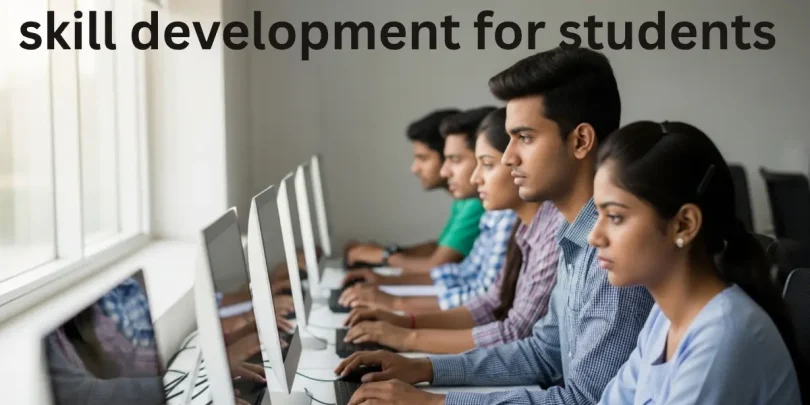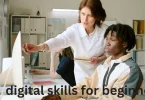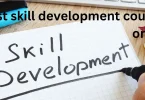You know that moment when you’re sitting in class, staring at the clock, and wondering when you’ll ever need to use that complicated math formula or random history date again? Maybe you’re great at memorizing facts but when it comes to speaking up in class or managing your time, things start to feel messy. We’ve all been there. The truth is, education isn’t just about passing exams—it’s about preparing for life beyond the classroom. That’s where skill development for students comes in. It’s what turns average learners into confident achievers. It’s about giving yourself the tools to communicate clearly, solve problems creatively, and adapt confidently to whatever comes next.
So, if you’ve ever felt like your school life isn’t fully preparing you for the “real world,” you’re not wrong. Real talk—many students feel exactly that way. The good news? Developing skills is something anyone can do, at any age, and it can completely change the way you learn, grow, and connect with others.
What Exactly Is Skill Development for Students?
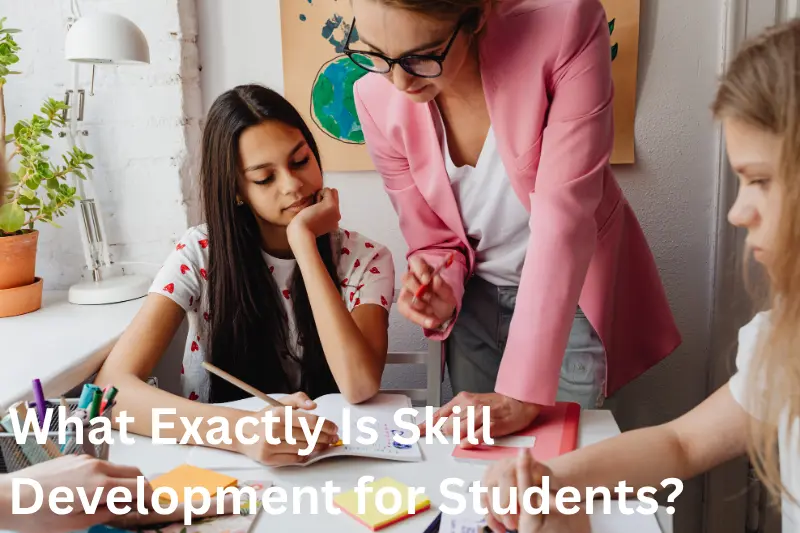
Here’s the deal—skill development isn’t some fancy buzzword teachers throw around. It’s the process of learning abilities that actually matter in day-to-day life. These aren’t just textbook skills—they’re practical, personal, and powerful. They include communication, leadership, critical thinking, emotional intelligence, and time management. Think of it as collecting new “superpowers” that help you deal with everything from class presentations to future job interviews. When students develop these skills, they become independent thinkers who can adapt and take initiative instead of waiting for instructions.
The idea of skill development focuses on both personal and academic growth. It’s not about memorizing more; it’s about understanding better. For example, learning to manage your time effectively helps you balance studies and rest, improving your productivity and focus. Similarly, mastering communication doesn’t just help in essays—it helps in relationships, teamwork, and confidence.
You may also like to read these articles
Unlock the Best Study Resources for School Students Today
Free Educational PDF Downloads for Smarter Learning and Study Success
Master Success with Study Guides for Competitive Exams
Online Notes and Tutorials 2025: Unlock Smarter Learning Anytime, Anywhere
Empower Your Learning with the Best Websites for Study Resources
Why Skill Development Matters More Than Ever
Let’s be honest—life doesn’t get easier after school. You’ll face new environments, tougher decisions, and unexpected challenges. Having strong skills helps you handle those moments with confidence. Skill development teaches you how to solve problems, communicate effectively, and make wise decisions. It’s the invisible force that builds confidence and clarity.
When you focus on skill development, you prepare for real-world demands. Companies today don’t just want straight-A students; they want people who can adapt, think critically, and work in teams. That’s why skill development is no longer optional—it’s essential. It improves employability, enhances creativity, and helps you stand out in a world that values innovation and emotional intelligence just as much as knowledge. In short, it’s not just what you know but how you use what you know that matters.
The Real-Life Struggles Students Face Without Skills
Let’s talk about what happens when students don’t focus on skills. Many students struggle not because they lack talent but because they lack guidance on how to apply what they know. You might ace your exams but still panic during a presentation or struggle to work with others. These struggles are common, but they’re not permanent. They come from gaps in skill development.
Many students face anxiety when it’s time to speak in front of others, find it hard to manage multiple deadlines, or avoid leadership opportunities because they lack confidence. Some feel directionless when asked to make independent choices or solve real problems. Others get overwhelmed with stress because they never learned how to prioritize or manage emotions. These experiences show how crucial skill development is—it’s the missing piece that transforms learning into empowerment.
Academic Skills Every Student Should Focus On
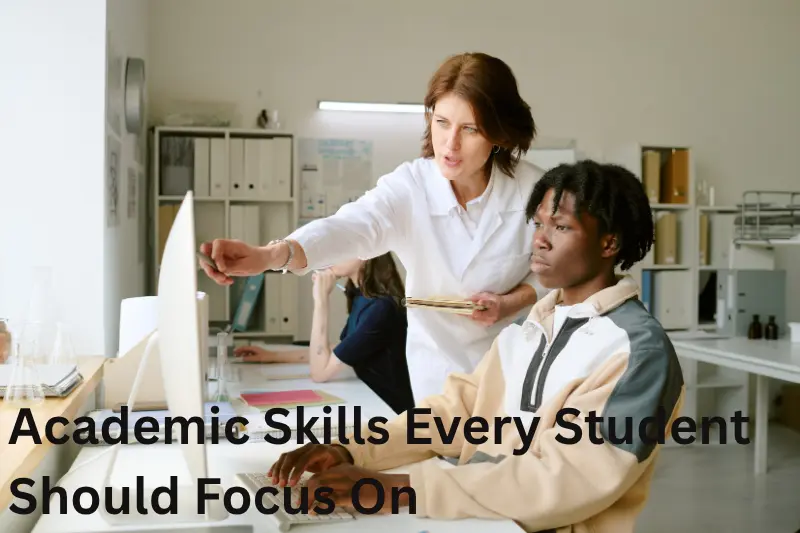
Let’s start with the basics. Academic skills are the foundation that supports your learning process. They’re not just about grades—they’re about developing effective study habits that make learning easier and more enjoyable.
Study skills are the first step. Learning how to study smart instead of just hard changes everything. Use techniques like summarizing lessons, creating flashcards, and practicing active recall to remember better. Note-taking also helps you focus during class. Next comes time management. Managing time wisely prevents last-minute stress. Use planners or digital apps to schedule your day, and break large tasks into smaller, achievable goals.
Another major skill is research and analysis. We live in an information-driven world. Learning how to research properly helps you find reliable sources and think critically about what you read. Analytical thinking then helps you connect ideas, understand context, and draw logical conclusions. These are the kind of skills that make you not just a better student but also a better problem-solver.
Soft Skills That Shape Your Personality
While academic skills build your knowledge, soft skills shape your personality. These are the abilities that determine how you interact, adapt, and succeed in the real world. Soft skills are what make you relatable, confident, and emotionally balanced.
Communication is the heart of soft skills. Knowing how to express yourself clearly and listen to others makes you stand out. It helps you build strong relationships with classmates, teachers, and future colleagues. Then there’s teamwork—no one succeeds alone. Learning to collaborate and respect others’ ideas teaches patience and open-mindedness.
Emotional intelligence is another game-changer. It’s about understanding your emotions and managing them wisely. People with strong emotional intelligence handle stress better, stay calm under pressure, and maintain positive relationships. Adaptability also matters a lot. The world changes fast, and those who can adjust quickly are the ones who keep moving forward.
Technical and Digital Skills for the Modern Student
Let’s face it—we’re living in a digital world. Every student today needs technical skills to stay relevant and confident. Digital literacy is one of the most important modern skills. It means knowing how to use computers, online research tools, and communication platforms effectively. Whether it’s creating a presentation, writing a report, or participating in virtual classes, digital know-how makes everything smoother.
Then there’s data handling. It’s not just for tech students—learning how to organize, analyze, and interpret information helps in all fields. Being tech-savvy doesn’t mean spending all your time online; it means using technology smartly to enhance your learning and productivity.
The Role of Teachers and Parents in Skill Development
Here’s something important—students can’t do it all alone. Teachers and parents play a vital role in skill development. Teachers guide students toward critical thinking, creativity, and curiosity. They can encourage students to participate in group projects, public speaking activities, and real-world problem-solving. A classroom that values questions and creativity fosters better learners.
Parents, on the other hand, can nurture these skills at home. Allowing students to take small responsibilities or make decisions boosts independence. Encouraging them to try new activities, manage their schedules, or even face small failures helps build resilience and self-confidence. When teachers and parents work together, students flourish not only academically but personally too.
How Extracurricular Activities Help in Skill Building
Now let’s talk about something students actually enjoy—extracurriculars. Activities like sports, music, debates, or volunteering are perfect opportunities for skill development. They build teamwork, discipline, creativity, and leadership in ways classroom learning can’t.
For example, joining a debate team improves communication and critical thinking. Playing sports teaches teamwork, discipline, and goal-setting. Volunteering instills empathy and social awareness. Even creative hobbies like painting or writing build patience and emotional balance. Every extracurricular experience adds something valuable to your personality.
How to Start Building Skills Right Now
If you’re wondering where to start, don’t overcomplicate it. Begin with small steps. First, identify what skill you’d like to improve. Maybe you want to become more confident speaking in public or better at managing time. Set a simple goal and commit to it.
Practice is the secret ingredient. Skills develop through repetition. Join school clubs, attend workshops, or try short online courses to strengthen your abilities. Don’t be afraid to make mistakes—they’re part of learning. Reflect regularly on your progress and celebrate small wins. The key is consistency, not perfection.
Common Myths About Skill Development
Let’s clear the air with some real talk. Many people believe myths that stop them from developing their skills. One common myth is, “I’m too young to start.” That’s completely false. The earlier you begin learning new skills, the stronger your foundation will be. Another myth is, “Only top students need extra skills.” Wrong again. Skill development helps everyone—it’s about personal growth, not competition.
And then there’s the myth that skills are only for professional life. In reality, they help you in every area of life—managing emotions, handling relationships, and achieving goals. Skills make you capable, independent, and adaptable, and those qualities go far beyond academics.
How Schools Can Make Skill Development a Priority
Schools have a huge role to play in promoting skill development. Traditional systems often focus too much on memorization and too little on application. Introducing project-based learning, group assignments, and creative problem-solving can change that. Schools that allow students to explore ideas, ask questions, and take part in leadership activities produce more confident, curious learners.
Encouraging open discussions, creative assignments, and workshops on communication or digital skills can make education more meaningful. When schools treat skills as equally important as academics, they prepare students for real success.
The Future of Education Lies in Skill Development
The education world is evolving faster than ever. With technology, globalization, and automation changing everything, skill development has become the future of learning. The most successful students in the coming years will be those who can think critically, adapt quickly, and work well with others.
The jobs of tomorrow will value creativity, empathy, and innovation more than rote learning. That’s why focusing on skill development today is like future-proofing your potential. It makes you more resilient and prepared for a constantly changing world.
Final Thoughts and Takeaway Checklist
So, let’s end this on a positive note. Grades fade, trends change, but skills stay with you for life. Skill development for students is not about being perfect—it’s about progress. It’s about becoming someone who can handle challenges, adapt to change, and grow with confidence.
Here’s a quick checklist
- Choose one skill to improve this month.
- Practice it daily, even in small ways.
- Reflect weekly on what you’ve learned.
- Ask teachers or mentors for feedback.
- Keep growing—skills are built through time, not luck.
FAQs
What is skill development for students
Skill development for students means improving their abilities, confidence, and mindset through learning practical, creative, and interpersonal skills.
Why is skill development important for students
It helps students gain confidence, think critically, and prepare for real-life challenges beyond classroom learning.
What are examples of skill development for students
Examples include communication, teamwork, problem-solving, leadership, time management, and digital literacy skills.
How can schools promote skill development for students
Schools can introduce workshops, project-based learning, group activities, and mentorship programs to enhance skill development.
How does skill development for students impact their future
It helps them become independent thinkers, better professionals, and more adaptable to future career opportunities.


